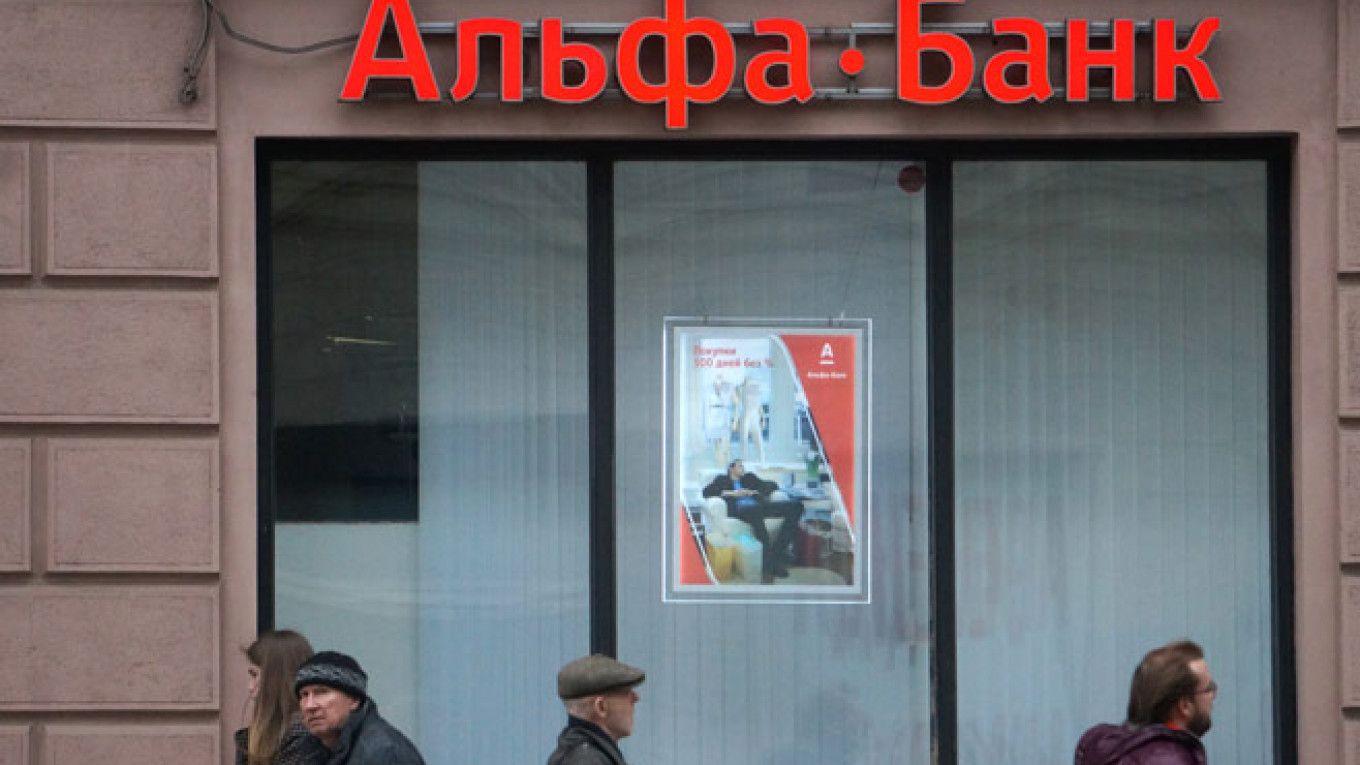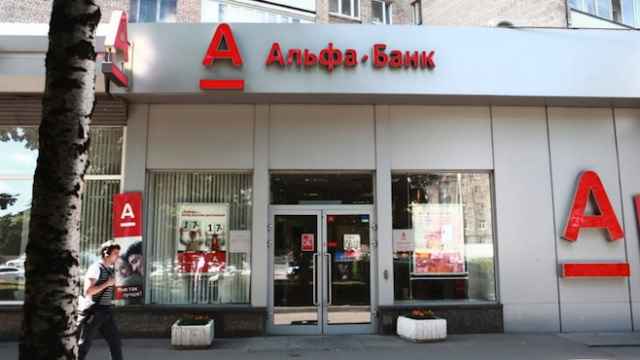Alfa Bank, one of Russia's largest private banks, has no need for an injection of additional capital until at least 2018 if it remains profitable, Alexei Marey, the bank's chief executive, said Monday.
Alfa Bank escaped Western sanctions over the Ukraine conflict and has picked up business from state rivals barred from accessing international capital markets.
The Central Bank has identified it as systemically important, at a time when an economic crisis is eroding profits and capital levels across Russia's banking sector.
"Our bank is absolutely resilient, profitable, with a clear strategy to grow the volume of its risk-free business and maintain or increase market share in sectors we have identified as key," Marey told the Reuters Russia Investment Summit.
"We don't have any need at the moment for anything from our shareholders … If the bank remains profitable and Central Bank regulatory requirements are introduced as they are now, then until 2018 we definitely won't have any such need."
The Central Bank has decided to introduce tougher liquidity and capital rules for systemically important banks from Jan. 1, 2016, as part of the Basel III regulatory framework.
The setback for banks has been cushioned by a generous state support program, which will see Alfa Bank receive 63 billion rubles ($960 million) of OFZ treasury bonds to enable it to boost lending to important businesses.
Marey said Alfa Bank would wait for a "correct window" to appear before it sought to borrow on foreign markets.
"Could we borrow on Western markets now? The answer is yes, … but we have no need to borrow at any price, therefore we are not using this opportunity."
Russian banks have passed the peak of loan-loss provisioning for their retail loans, he said, but for corporate loans the situation was less clear.
Marey added that Alfa Bank was not considering buying any rival banks at present, and that it was cautious on participating in Central Bank-funded bailouts.
The outlook for the banking sector as a whole remained gloomy, he said, with any meager profits in 2015 likely to be made by a narrow group of banks.
"This isn't 2008, when many didn't even manage to get scared … The [economic] contraction isn't as deep but structurally it's more complex. We don't expect a quick recovery in the next few years. Therefore to just defer [the issue of bad loans] is senseless."
A Message from The Moscow Times:
Dear readers,
We are facing unprecedented challenges. Russia's Prosecutor General's Office has designated The Moscow Times as an "undesirable" organization, criminalizing our work and putting our staff at risk of prosecution. This follows our earlier unjust labeling as a "foreign agent."
These actions are direct attempts to silence independent journalism in Russia. The authorities claim our work "discredits the decisions of the Russian leadership." We see things differently: we strive to provide accurate, unbiased reporting on Russia.
We, the journalists of The Moscow Times, refuse to be silenced. But to continue our work, we need your help.
Your support, no matter how small, makes a world of difference. If you can, please support us monthly starting from just $2. It's quick to set up, and every contribution makes a significant impact.
By supporting The Moscow Times, you're defending open, independent journalism in the face of repression. Thank you for standing with us.
Remind me later.





